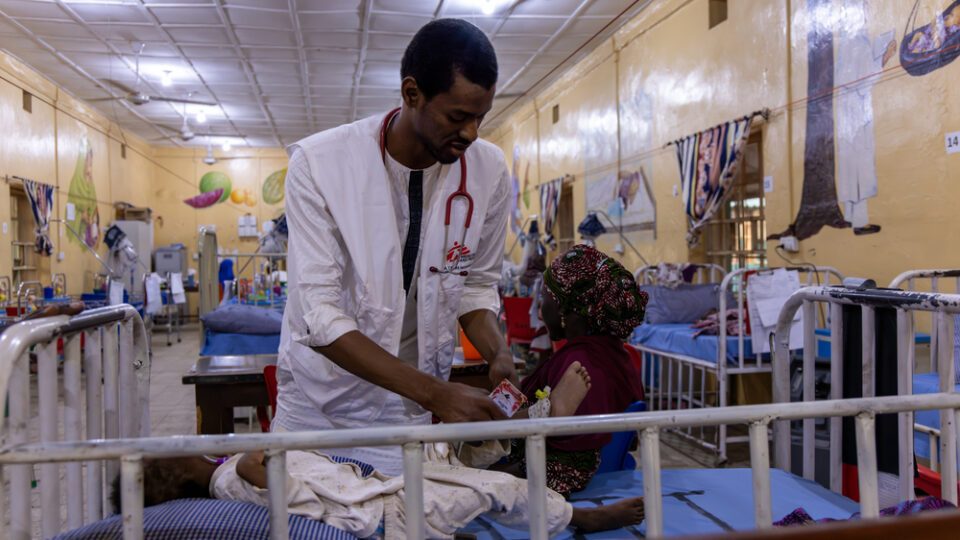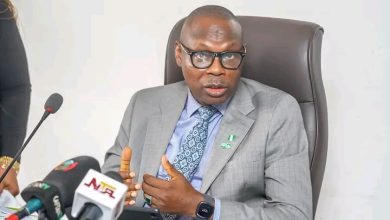UNICEF Raises Alarm Over 3.5 Million Nigerian Children Battling Severe Acute Malnutrition
UNICEF warns that 3.5 million Nigerian children face severe malnutrition and urgent danger.
Aid groups say supply shortages, funding cuts, and overwhelmed clinics threaten thousands of young lives.
The United Nations Children’s Fund (UNICEF) has raised serious concerns over the alarming rate of severe acute malnutrition (SAM) among children in Nigeria, stating that at least 3.5 million children are currently affected.

UNICEF’s Chief of Field Operations and Emergencies, Judith Leveille, made the disclosure on Tuesday during a joint press conference in Abuja. The briefing focused on the European Union’s support for victims of the Yelwata crisis in Benue State and the escalating nutrition emergency in Nigeria’s North-East and North-West regions.
Leveille said the scale of the crisis is severe and demands immediate intervention, revealing that about 400,000 children could die from malnutrition-related complications within just 38 days if nothing is done.
“Today, we are gathered because we have a common understanding. More can be done to ensure that all severely acute malnourished children, and we are talking about a burden of 3.5 million children in Nigeria, are treated,” she said.
She shared that during a visit to some of the affected areas over the weekend, over 100 children in critical condition were found needing urgent care. She noted that they met with children like Memunah and Aisha, along with their mothers and healthcare workers from Médecins Sans Frontières (MSF) and Action Against Hunger, who are working day and night to save lives.
However, she warned that many of the nutritional stabilization centers are already overwhelmed and that the worst part of the lean season is yet to come.
“The situation will peak in about three weeks and last for over a month. From what we saw in Sokoto State, similar conditions are likely to be found across many other northern states. We are facing a looming stockout of essential nutrition supplies by September 1,” she said.
She stressed the importance of urgent efforts to restock supplies like ready-to-use therapeutic food (RUTF) and called for greater support in terms of both funding and manpower. Leveille also expressed concern about missing the chance to save future leaders among the malnourished children.
“There could be a Nobel Prize winner among these children. A future scientist, musician or actor. We must act now,” she added.
Speaking further, Camilla Higgins, Director of the Nigeria INGO Forum, emphasized the magnitude of the crisis by equating the affected children to filling Abuja’s national stadium 60 times.
“That’s the equivalent of the national stadium here in Abuja times 60. You would have to fill it 60 times to capture that number of children, and they are all at risk of increased death,” Higgins said.
She blamed the situation in part on declining international funding, particularly referencing the recent cutbacks from the U.S. and other key donors. Higgins warned that response capacity, especially in the Northeast and Northwest, is collapsing.
“In some locations, SAM admissions have jumped by 40 to 73 per cent. And now, we’re even seeing signs of malnutrition in adults. It’s a major emergency, but we have fewer resources,” she stated.
Higgins urged the Nigerian government to lead a coordinated national response while assuring that international NGOs are ready to collaborate.
Bilal Ahmad, Head of Mission for MSF, also expressed deep concern over the worsening malnutrition crisis, especially in Sokoto State. He revealed that MSF facilities are already overstretched despite being early in the rainy season.
“In Katsina, we’ve had to double our bed capacity from 450 to 900. In other areas, we’re putting two children in a single bed. In another site, a 60-bed plan had to be expanded to 120, and requests are still pouring in for more space,” Ahmad explained.
He also noted with worry that mortality rates at some locations range from 3.7 to 7.7 percent. “These are children who came from far away in very bad shape. Many of them arrive too late to be saved,” he said.
Ahmad called for the expansion of treatment centers to reduce travel time for sick children and highlighted the urgent need to restock therapeutic food and medicine, warning that current supplies cannot meet demand.
Meanwhile, Minister of State for Humanitarian Affairs and Poverty Reduction, Dr. Yusuf Sununu, said the Tinubu administration remains committed to working with both local and global partners to address humanitarian challenges.
He emphasized the importance of transparency and accountability in all government interventions to strengthen donor trust and ensure effective humanitarian action.
“The government is committed to making sure every intervention is traceable, transparent, and impactful. We are hopeful that this partnership will bring meaningful change for affected communities,” Sununu said.
The call from UNICEF, INGOs, and MSF paints a dire picture of an unfolding emergency that could result in the death of hundreds of thousands of children if swift action is not taken.



